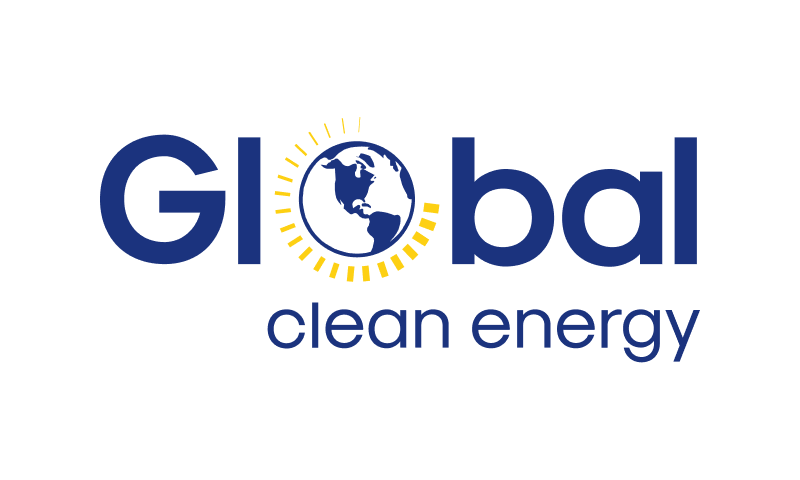
Global Clean Energy Signs $30 Million USDA Climate-Smart Commodities Grant Kickstarting Implementation of the Climate-Smart Camelina Project
Published by Todd Bush on June 5, 2023
LOS ANGELES--(BUSINESS WIRE)--Global Clean Energy Holdings, Inc. (OTCQB:GCEH) and the United States Department of Agriculture (USDA) have signed a contract for the Partnerships for Climate-Smart Commodities Grant for their Climate-Smart Camelina Project. With the signing, work can officially begin on their $30 million pilot project to measure and validate the advantages of Camelina sativa (camelina) as an ultra-low carbon nonfood renewable fuel feedstock.
>> In Other News: Chart Industries, Inc. and Crane Company Successfully Test a New Liquid Hydrogen Valve
Climate-Smart Camelina is a large-scale pilot project to implement, measure, and validate the climate advantages of camelina in both rotational (e.g., on fallow acres) and winter crop (e.g., in a double-crop rotation) production systems. The project will accelerate farmers’ adoption of camelina grown to produce feedstock for renewable biofuels and chemicals without causing land-use change and while increasing carbon capture in the soil. Further, the project will support market development to provide additional revenue streams to growers and provide a premium for this low carbon intensity crop.
“We’re excited to begin this important work to help prove what we have known internally for years – that camelina has the potential to be the lowest carbon intensity feedstock option on the market,” Chief Executive Officer of Global Clean Energy Richard Palmer said. “The environmental benefits of camelina are substantial, and with the data collected from this effort, the growth of camelina adoption can accelerate along with the confidence of growers.”
The project entails a range of measurements at different spatial and temporal scales integrated into metrics which will evaluate the production efficiency and carbon intensity of the biofuel generated, as well as soil carbon sequestration and general agronomic best practices. The key highlights for this project are the use of multiple methods of data collection to cross reference approaches, calibrate sensors, and validate models for long-term low-cost scalability. In the end, this project aims to offer several benefits to growers and the environment, including:
- Increasing overall soil health;
- Increasing the total carbon sequestered within soils;
- Decreasing the carbon intensity associated with growing camelina;
- Obtaining more accurate measurements to prove environmental benefits of growing camelina;
- And providing growers with access to affordable and reliable measurements.
Global Clean Energy owns the world’s largest camelina patent and intellectual property portfolio. Their wholly owned subsidiary, Sustainable Oils, Inc., contracts directly with farmers to grow camelina currently in key regions of the U.S. including Colorado, Idaho, Kansas, Montana, Nebraska, North Dakota, Oklahoma, Oregon, and Washington. Camelina grain is grown for use as a source for Global Clean Energy’s ultra-low carbon renewable fuels produced from their Bakersfield Renewable Fuels refinery in California.
The USDA Climate-Smart Commodities announcement can be accessed here.
ABOUT GLOBAL CLEAN ENERGY
Global Clean Energy Holdings, Inc. (OTCQB:GCEH) is a vertically integrated renewable fuels business that is focused on reducing carbon emissions sustainably through proprietary nonfood camelina varieties – delivering among the lowest carbon intensity renewable fuel in the marketplace. Global Clean Energy’s strategy since inception has been to control the full integration of the renewable fuels supply chain from science to seed and farm to fuel. They aim to operate the development, production, processing, and transportation of feedstocks, to the refining and production of renewable fuels. Global Clean Energy will process their proprietary nonfood camelina feedstock at their Bakersfield, California renewable fuels refinery, yielding a renewable diesel that is chemically identical to petroleum diesel, but with 80+ percent lower carbon emissions. Global Clean Energy’s proprietary camelina varieties are the only nonfood renewable feedstock on the market certified for both the U.S. EPA’s Renewable Fuel Standard and California’s Low Carbon Fuel Standard. More information can be found at www.gceholdings.com.
Subscribe to the newsletter
Daily decarbonization data and news delivered to your inbox
Follow the money flow of climate, technology, and energy investments to uncover new opportunities and jobs.
Latest issues
-
Cummins Quit Electrolyzers. Electric Hydrogen Didn't.
Inside This Issue ⚡ Cummins Quit Electrolyzers. Electric Hydrogen Didn't. 🧪 New Electrified Method Captures Carbon Dioxide From Air 🌾 Iowa Could Be on the Cusp of a Hydrogen Rush; Lawmakers Weigh ...
-
Inside America’s Carbon Capture Reality Check
Inside This Issue ⚡ Duke Energy Florida Goes Live With First 100% Hydrogen System ✈️ Air bp Signs Agreement With Airbus on Flight Services and Fuel Supplies in Europe 🌊 Pairing Reefs and Mangroves...
-
Three Nebraska Plants Prove Ethanol CCS Actually Works
Inside this Issue 🌽 Three Nebraska Plants Prove Ethanol CCS Actually Works ☀️ SunHydrogen and CTF Solar Sign Agreement to Accelerate Hydrogen Panel Manufacturing 🧪 GenH2 Completes Major Milestone:...
Company Announcements
-
Super6 Carbon and Mangrove Systems have signed a strategic agreement to use Mangrove’s digital MRV platform across Super6’s engineered carbon removal network in the US TORONTO, ON — February 10, 2...
-
From manure to energy and valuable nutrients: 130,000 tonnes of manure per year will be transformed into 360,000 GJ of Renewable Natural Gas (RNG) at a Taurus Canada Renewable Natural Gas (RNG) Cor...
-
JERA Announces Close of Haynesville Shale Gas Asset in Louisiana
TOKYO and HOUSTON, Feb. 12, 2026 /PRNewswire/ -- JERA Co. Inc., a global energy leader and Japan's largest power generation company, today announced that through its subsidiary JERA Americas Inc., ...
-
Buffalo Biodiesel Inc. (“BBD”), a leading recycler of waste vegetable used cooking oil (WVUCO) and producer of renewable feedstocks, announced that they have officially renewed a Part 364 Waste Tra...